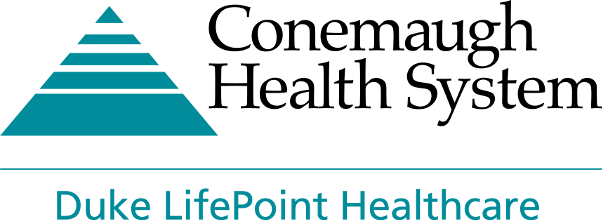Cancer Treatment Options
An effective cancer treatment plan requires a team approach for best results. Conemaugh Health System combines the expertise of specialists, surgeons, pathologists, radiologists, and additional support services including nutrition to provide each patient individualized treatment. Recommendations for treatment may include chemotherapy, radiation therapy, surgery, or a combination of services. Conemaugh's team ensures patient involvement and maintaining open communication between all individuals involved with treatment.
Chemotherapy
Chemotherapy attacks cancer with medications designed to kill the cancer cells. The treatment may be used alone or combined with surgery, radiation therapy or hormonal therapy. Chemotherapy cures some cancers, and offers control of the disease for others. The duration and type of chemotherapy depends on the type of cancer and the patient's response to therapy. Regular evaluations, including blood work and possible CT or PET / CT Scan, will help determine the effectiveness of the treatment and if it needs to be adjusted for improved outcomes. Our on-site pharmacy staff ensures chemotherapy is administered safely. Chemotherapy is provided on an inpatient and outpatient basis. Cancer specialists administer chemotherapy several ways, including intravenously at the Conemaugh Cancer Care Center, and by mouth, and antibody therapy which directly targets cancer cells.
Radiation Therapy
Radiation Therapy is used to destroy cancer cells in a specific part of the body, to help shrink tumors before and after surgery, and to help ease cancer-related pain. Radiation therapy is used in more than half of all cancer cases. Radiation therapy is provided on an outpatient basis.
Interventional Radiology
Conemaugh physicians use image guidance and small catheters to perform procedures that can support chemotherapy and radiation treatments, typically with very few side effects.
Interventional Radiology Procedures
- Vertebroplasty and Kyphoplasty, which provide long-term pain relief from compression fractures due to bone cancer or osteoporosis
- Radiofrequency Ablation (RFA) for liver, kidney, lung and breast tumors. RFA is used for primary and metastatic tumors and is designed to kill tumor cells while sparing healthy tissue
- Chemoembolization for liver cancer delivers high-dose chemotherapy agents directly to the diseased liver while blocking the blood supply to the tumor, allowing for a quicker recovery
Advantages of Interventional Radiology
- Most procedures can be performed on an outpatient basis or require only a short hospital stay.
- General anesthesia is usually not required.
- Risk, pain and recovery time are often reduced.
- Procedures are sometimes less expensive than surgery.
Surgery
Removal of cancerous cells through surgery may also be included in the comprehensive treatment plan. Conemaugh Health System physicians are trained in the latest surgical procedures, including minimally invasive and robotic assisted surgery, resulting in shorter hospital stays and faster recovery. Length of recovery depends on the type of procedure. If necessary, chemotherapy or radiation therapy may be used before or after surgery.
Conemaugh Health System specializes in care for:
- Breast health and reconstructive surgery
- Colon and rectal diseases
- Gastrointestinal
- Lung and respiratory health
